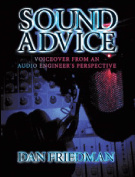 Use your voice, but be careful what you say. Gilbert Gottfried was not so careful, and he tweeted himself out of a VO gig. Tasteless comments he posted on Twitter about the Earthquake and Tsunami in Japan led Aflac to fire him as the voice of the Aflac Duck.
Use your voice, but be careful what you say. Gilbert Gottfried was not so careful, and he tweeted himself out of a VO gig. Tasteless comments he posted on Twitter about the Earthquake and Tsunami in Japan led Aflac to fire him as the voice of the Aflac Duck.
Once again this proves that in our brave new world of social networking, you must carefully consider everything you say and/or post. An online presence is essential for all businesses and that presence must be perceived as positive in order to succeed. There is no doubt that contemplating everything you say or write can be exhausting, but failing to do so can be disastrous. Also it is not just what you say, but when you say it. It is a universal truth that, in comedy, timing is everything. Clearly Gottfried’s statements were tasteless, but their timing even more so.
Gottfried is (arguably) a comedian. Comedians are expected to push the boundaries and we would probably not find many of them funny if they didn’t. However, he is also a celebrity voice talent who is closely associated with the Aflac brand. Anyone in a position such as this should feel some sense of responsibility and concern for their client. They should take into consideration how their client may be perceived when expressing a thought, opinion, or even making a “joke.”
“When it comes to social media, praise publicly… insult privately.” This is a phrase I was recently introduced to by my good friend Mercedes Rose. However, didn’t our Mom’s also say it best when they told us, “If you can’t say anything nice…don’t say anything at all”?
ALSO Posted on The PROCOMM VOICES Blog
 My 8yr old son is a child voiceover artist, and today he had a
My 8yr old son is a child voiceover artist, and today he had a  Am I ready to make your first
Am I ready to make your first 


